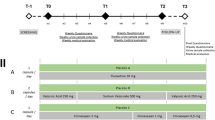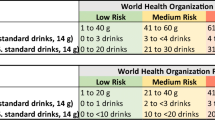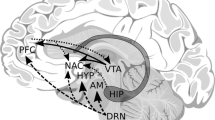Abstract
In the context of cannabis legalization, an important question among clinicians, policymakers, and the public is whether availability of legal cannabis will significantly reduce consumption (demand) of illegal cannabis. Using paradigms from behavioural economics, we tested the prediction that legal cannabis would be an asymmetrical substitute for illegal cannabis, with legal cannabis operating as a superior commodity based on its regulated status. In a sample of 289 adult cannabis users in Ontario, we found evidence of substitutability for both legal and illegal cannabis, but significantly lower substitutability of illegal for legal cannabis, a pattern that was also present for price elasticity (α) and Pmax. Thus, the data indicated asymmetric substitution such that the availability of legal cannabis substantially decreased demand for illegal cannabis, but a significantly smaller effect in reverse. These results suggest that the introduction of legal cannabis into the market may disrupt and reduce illegal purchases, contributing to the reduction of the potential harms associated with the illegal market. However, in revealing price windows in which legal cannabis is preferred over the contraband alternative, these data also have significant implications for pricing policies.
Résumé
Dans le contexte de la légalisation du cannabis, l’une des grandes questions qui se posent chez les cliniciens, les responsables des politiques et dans la population est de savoir si la disponibilité du cannabis légal réduira sensiblement la consommation (la demande) du cannabis illégal. À l’aide des paradigmes de l’économie comportementale, nous avons testé la prédiction selon laquelle le cannabis légal sera un substitut asymétrique au cannabis illégal et constituera un produit supérieur en raison de son statut réglementé. Dans un échantillon de 289 consommateurs de cannabis adultes en Ontario, nous avons observé des indices de substituabilité tant pour le cannabis légal que pour le produit illégal, mais une substituabilité sensiblement moindre du produit légal par le produit illégal, tendance qui était également présente pour l’élasticité des prix (α) et le Pmax. Les données font donc état d’une substitution asymétrique : la disponibilité du cannabis légal réduit sensiblement la demande de cannabis illégal, mais l’effet inverse est sensiblement moindre. Ces résultats indiquent que l’introduction du cannabis légal sur le marché pourrait désorganiser et faire diminuer les achats de cannabis illégal, réduisant ainsi les méfaits possibles associés au marché illégal. En spécifiant les fenêtres de prix où le cannabis légal est préféré aux produits de contrebande, nos données ont aussi des conséquences importantes pour les politiques d’établissement des prix.


Similar content being viewed by others
Change history
11 June 2019
The published version of Fig. 1 contained a mistake in the colour scale for the vertical lines and corresponding labels for the <Emphasis Type="Italic">P</Emphasis><Subscript>max</Subscript> values.
References
Amlung, M., & MacKillop, J. (2015). Further evidence of close correspondence for alcohol demand decision making for hypothetical and incentivized rewards. Behav Process, 113, 187–191. https://doi.org/10.1016/j.beproc.2015.02.012.
Amlung, M., Acker, J., Stojek, M. K., Murphy, J. G., & MacKillop, J. (2012). Is talk “cheap”? An initial investigation of the equivalence of alcohol purchase task performance for hypothetical and actual rewards. Alcohol Clin Exp Res, 36(4), 716–724. https://doi.org/10.1111/j.1530-0277.2011.01656.x.
Amlung, M., Reed, D. D., Morris, V., Aston, E. R., Metrik, J., & MacKillop, J. (2018). Price elasticity of illegal versus legal cannabis: a behavioral economic substitutability analysis. Addiction. https://doi.org/10.1111/add.14437.
Aston, E. R., Metrik, J., & MacKillop, J. (2015). Further validation of a marijuana purchase task. Drug Alcohol Depend, 152, 32–38. https://doi.org/10.1016/j.drugalcdep.2015.04.025.
Campion-Smith, B. (2017). Legalized pot to cost $10 a gram, finance ministers say. The Toronto Star. https://www.thestar.com/news/canada/2017/12/11/legalized-pot-to-cost-10-a-gram-finance-ministers-say.html. Published December 11. Accessed 17 October 2017
Canadian Centre on Substance Abuse. Cannabis. Ottawa, ON. 2017.
Collins, R. L., Vincent, P. C., Yu, J., Liu, L., & Epstein, L. H. (2014). A behavioral economic approach to assessing demand for marijuana. Exp Clin Psychopharmacol, 22(3), 211–221. https://doi.org/10.1037/a0035318.
Crawley, M. (2017). Ontario considers pricing recreational pot at $10 a gram. CBC News. http://www.cbc.ca/news/canada/toronto/marijuana-price-ontario-10-gram-1.4298540. Published September 20. Accessed 17 Oct 2017.
Hursh, S. R. (2014). Behavioral economics and the analysis of consumption and choice. In: McSweeney, F. K., Murphy, E. S. eds. The Wiley Blackwell handbook of operant and classical conditioning. Hoboken 275–305.
Ialomiteanu, A. R., Hamilton, H. A., Adlaf, E. M., Mann, R. E. (2016). CAMH Monitor eReport 2015: substance use, mental health and well-being among Ontario adults 1977–2015 (CAMH Research Document Series No. 45). Toronto, ON.
Johnson, M. W., Johnson, P. S., Rass, O., & Pacek, L. R. (2017). Behavioral economic substitutability of e-cigarettes, tobacco cigarettes, and nicotine gum. J Psychopharmacol, 31(7), 851–860. https://doi.org/10.1177/0269881117711921.
Rehm, J., Crépault, J.-F., & Fischer, B. (2016). The devil is in the details! On regulating cannabis use in Canada based on public health criteria. Int J Heal Policy Manag Heal policy Manag, 6(3), 173–176. https://doi.org/10.15171/ijhpm.2016.114.
Volkow, N. D., Baler, R. D., Compton, W. M., & Weiss, S. R. B. (2014). Adverse health effects of marijuana use. N Engl J Med, 370(23), 2219–2227. https://doi.org/10.1056/NEJMra1402309.
Funding
This research was funded, in part, by the Michael G. DeGroote Centre for Medicinal Cannabis Research at McMaster University and the Peter Boris Centre for Addictions Research at McMaster University/St. Joseph’s Healthcare Hamilton. Funders had no role in the research or the decision to publish. JM is a principal in BEAM Diagnostics, Inc.
Author information
Authors and Affiliations
Corresponding author
Ethics declarations
All participants gave informed consent and received gift cards as incentives; the study was approved by the Hamilton Integrated Research Ethics Board.
Conflict of interest
The authors declare that they have no conflicts of interest.
Additional information
Publisher’s Note
Springer Nature remains neutral with regard to jurisdictional claims in published maps and institutional affiliations.
Electronic supplementary material
ESM 1
(DOCX 458 kb)
Rights and permissions
About this article
Cite this article
Amlung, M., MacKillop, J. Availability of legalized cannabis reduces demand for illegal cannabis among Canadian cannabis users: evidence from a behavioural economic substitution paradigm. Can J Public Health 110, 216–221 (2019). https://doi.org/10.17269/s41997-018-0160-4
Received:
Accepted:
Published:
Issue Date:
DOI: https://doi.org/10.17269/s41997-018-0160-4




